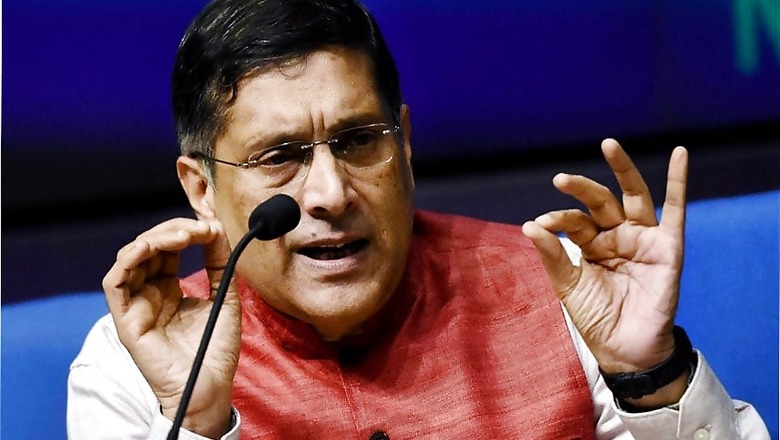
views
New Delhi: Chief Economic Adviser Arvind Subramanian has said that he ventured into the judicial domain, suggesting various reforms, notwithstanding the warnings by academics, friends and family to stay clear of the judiciary.
The big ideas in this year's Economic Survey are with respect to judiciary, gender equality and pushing science and technology, he told PTI in an interview.
"We should think more and more also of ease of doing business in terms of timely justice... We got into new areas like science and technology, judiciary.
"We were told in advance (by my academic friends and family) that we stay clear of judiciary but we have gone into those areas. How much more radical you want us to be?," he said.
The Economic Survey 2017-18 tabled by Finance Minister Arun Jaitley in Parliament on Monday among other things underlined the need for extensive reforms of the judicial system with a view to promote ease of doing.
Highlighting the increasing pendency of cases in courts, the Survey, authored by Subramanian, said that delays and injunctions are severely impacting the progress of cases, especially commercial disputes.
In such circumstances, the government and the courts need to work together for large-scale reforms and incremental improvements to combat a problem that is exacting a large toll from the economy, it said while suggesting several steps to deal with the problem.
The measures include expanding judicial capacity in the lower courts and reducing the existing burden on the high courts and the Supreme Court; creation of an independent panel to decide on appeal of tax related cases.
"For a smooth contract enforcement regime, it may be imperative to build capacity in the lower judiciary to particularly deal with economic and commercial cases, and allow the high courts to focus on streamlining and clarifying questions of law," the survey had said.
It suggested for incentivising expenditure on court modernisation and digitisation.
"This needs to be supported with greater provision of resources for both tribunals and courts," it said adding courts may consider prioritising stayed cases and impose stricter timelines within which cases with temporary injunctions may be decided, especially when they involve government infrastructure projects.
Giving some facts, the survey had said there is a high level of pendency across six tribunals, estimated at about 1.8 lakh cases.
The total backlog in High Courts by the end of 2017, as per the National Judicial Data Grid, was close to 3.5 million cases.
While the volume of economic cases is smaller than other case categories, their average duration of pendency is arguably the worst of most cases, nearly 4.3 years for five major High Courts, it added.
As of the quarter ending March 2017, a total of 1.45 lakh appeals were pending with the Commissioner (Appeals), CESTAT, HCs and the SC together, that were valued by the Department at 2.62 lakh crore.
"Together, the claims for indirect and direct tax stuck in litigation (Appellate Tribunal and upwards) by the quarter ending March, 2017 amounted to nearly Rs 7.58 lakh crore, over 4.7 per cent of GDP," it said.



















Comments
0 comment